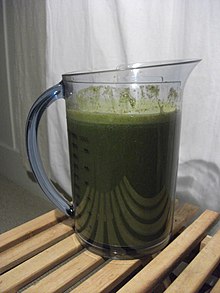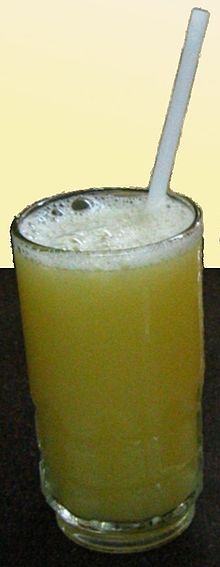Juice fasting
In addition to this new technology, Walker also pioneered today's juicing cleanse through his many cookbooks that advocated for a raw, mostly liquid diet.
[4] Walker's and Kordich's contributions to juice fasting propelled the diet to today's current version.
[7][8][9] Catherine Collins, chief dietician of St George's Hospital Medical School in London, England, states that: "The concept of 'detox' is a marketing myth rather than a physiological entity.
The idea that an avalanche of vitamins, minerals, and laxatives taken over a 2 to 7 day period can have a long-lasting benefit for the body is also a marketing myth.
[11] A review in The Gale Encyclopedia of Diets, has noted potential risks of juice fasting: The major risks to health from juice fasts include metabolic crises in patients with undiagnosed diabetes or hypoglycemia; dizziness or fainting due to sudden lowering of blood pressure; diarrhea, which may result in dehydration and an imbalance of electrolytes in the body; and protein or calcium deficiencies from unsupervised long-term juice fasts.


